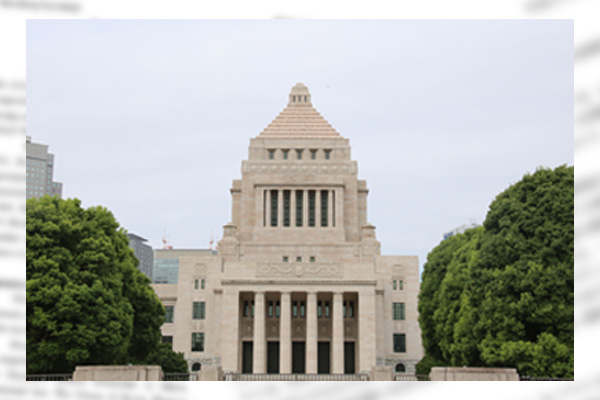On May 6, Japan’s House of Representatives Commission on the Constitution passed a bill to revise the National Referendum Act regarding constitutional amendment procedures. The ruling Liberal Democratic Party and the opposition Constitutional Democratic Party of Japan agreed to pass the bill during the current Diet session scheduled to end on June 16. I hope the passage would heighten the momentum of constitutional amendments.
The National Referendum Act provides for procedures rather than specific contents of constitutional amendment. Nevertheless, the bill to revise the act has taken nearly three years to pass the commission since its submission in June 2018. It had been left pending at eight Diet sessions. Given such waste of time, Diet lawmakers can’t help but be criticized for failing to trust the sovereign people. A national referendum on constitutional amendments is a precious opportunity for the people to exercise sovereign rights. The Diet described as “the highest organ of state power” in the constitution has so far deprived the people of such precious opportunity.
Don’t allow shelving for three more years
There is a matter of concern regarding the National Referendum Act revision bill itself. At a meeting of the LDP and CDP secretaries-general on May 6, the LDP accepted the CDP’s proposal that the bill include a supplementary provision for a legislative action to be taken in three years after the effectuation of the revised act on regulations on commercial messages for the pros or cons of constitutional amendments. Regarding the supplementary provision, some CDP lawmakers say it would be difficult to discuss constitution amendments over the three years. The supplementary provision was agreed at the closed LDP-CDP meeting, of which no minute was made, and may be interpreted variously. If the vague agreement is used to shelve discussions on constitutional amendments, it would be egregious.
Lawmakers are in position to unflaggingly discuss the constitution. At a time when Japan is in a severe security environment and the novel coronavirus crisis, lawmakers are supposed to discuss specific constitutional amendments. But they have not fulfilled their responsibility.
I doubt if Prime Minister Yoshihide Suga himself is ambitious to amend the constitution. In a video message to a meeting of constitutional amendment supporters on the May 3 Constitution Memorial Day, Suga noted that interests were growing in preparations for emergency situations, emphasizing the necessity for amending the constitution to include emergency clauses. Asked at a press conference on May 7 to explain specific infectious disease countermeasures that cannot be taken without an emergency clause in the constitution, however, Suga said that he would check various problems and consider what to do after the pandemic is settled. Such remark may not be made by a person who considers constitutional amendments on a routine basis.
The National Referendum Act revision alone cannot satisfy conservatives
“Prime Minister Suga has achieved the enactment of the revision (to the National Referendum Act)” that his predecessor Shinzo Abe could not accomplish while advocating constitutional amendments, said the Asahi Shimbun newspaper on May 7. “The prime minister has the motive of solidifying support from conservatives as the LDP’s power base.”
Suga cannot possibly view the enactment of the revision alone as his achievement as described by the Asahi. At a time when Chinese threats are growing serious, conservatives seek constitutional amendments to prevent the Self-Defense Forces from being forced to act under restrictions imposed by Article 9 of the constitution. They are not satisfied with the enactment of the revision to the National Referendum Act alone.
Takashi Arimoto is publisher of Monthly Magazine SEIRON at the Sankei Shimbun newspaper.


